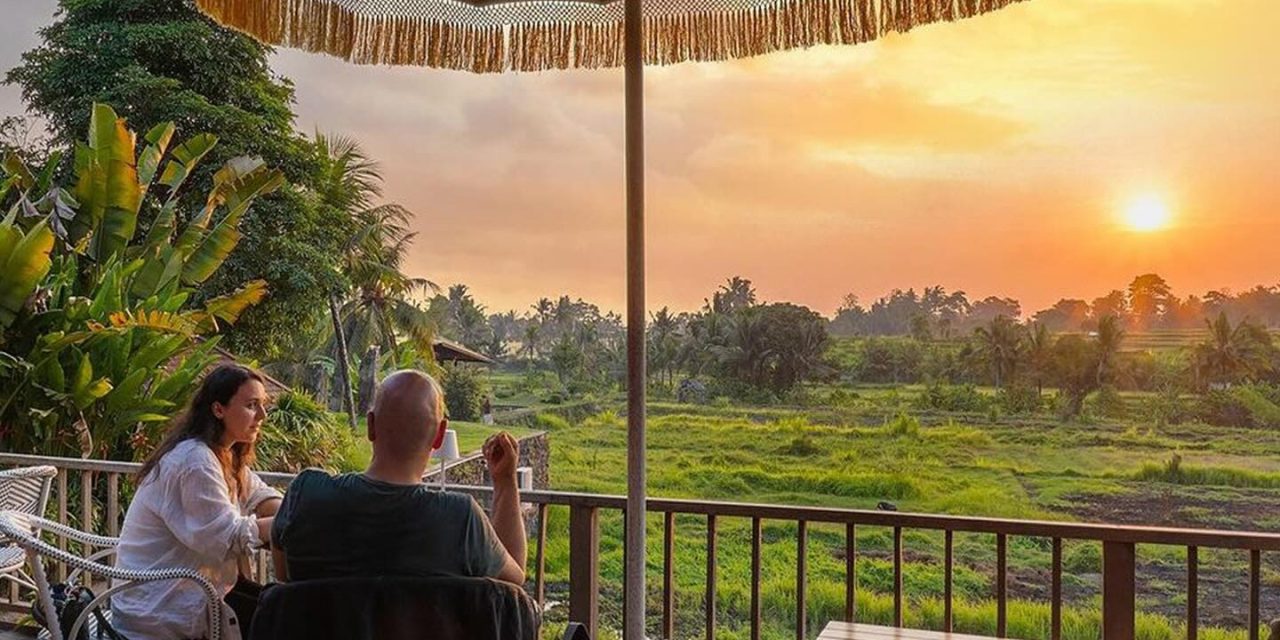Bali, often dubbed the ‘Island of the Gods,’ is not just known for its stunning landscapes and beautiful beaches. It’s a place where ancient traditions and spiritual practices intertwine, creating an atmosphere that is both enchanting and profoundly moving. If you’ve ever wandered through a Balinese village, chances are you’ve stumbled upon one of their mesmerizing traditional rituals or ceremonies. Let’s dive into the heart of Bali’s culture, sharing insights, personal anecdotes, and some practical advice for those wanting to experience Bali beyond its touristy facade.
A Glimpse into Balinese Spirituality
From the moment you set foot on this magical island, the air is filled with a sense of devotion. Every morning, you’ll find offerings placed at temples, homes, and even on the street outside shops. These small, intricate creations made of palm leaves, flowers, and food are not just pretty decorations; they’re expressions of gratitude to the Gods, sent to attract positive energy.
Personal Anecdote: I remember my first morning in Ubud. As I sipped my coffee at a local cafe, I noticed a local woman, gracefully placing handmade offerings at the temple across from me. Intrigued, I asked her about it. She smiled warmly and explained that these rituals are a daily practice in reminding themselves of the divine presence in their lives. It struck me how deeply personal yet community-oriented these traditions are.
Major Ceremonies and Their Significance
1. Odalan: The Temple Anniversary
One of the most significant ceremonies in Balinese culture is Odalan, the temple anniversary. It’s a time for the community to come together, to honor their temple and the deities that reside there. The date is determined based on the temple’s founding, following the Balinese calendar.
Example: I was fortunate enough to witness an Odalan ceremony at a local temple in Tabanan. The vibrant colors of the offerings, the sacred music of gamelan, and the swirling smoke from incense created a sensory overload. Local villagers dressed in traditional attire added to the festive atmosphere. The energy was infectious, making it hard not to join in.
2. Ngaben: The Cremation Ceremony
Ngaben is one of the most sacred ceremonies you can witness in Bali. It’s a funeral ceremony rooted in Hindu beliefs, where the deceased is honored, and their spirit is guided to the afterlife. This ceremony can be grand and colorful, often involving elaborate processions and ornate sarcophagi.
Relatable Scenario: My friend, who lives in Bali, lost his grandfather last year. I attended the Ngaben ceremony and was taken aback by the emotions on display. Joy and sorrow blended beautifully; it was a celebration of life rather than a somber goodbye. The entire village participated, showcasing the deep sense of community that characterizes Balinese culture.
3. Galungan and Kuningan: The Triumph of Dharma
Galungan marks the victory of dharma (good) over adharma (evil) and is celebrated every 210 days. It’s a time for Balinese families to come together and honor their ancestors, with offerings, prayers, and traditional dances.
Practical Advice: If you’re in Bali during this period, take the chance to visit local family homes. You’ll often be welcomed with open arms and treated to traditional sweets. It’s a perfect occasion to engage with locals and understand their customs firsthand.
Engaging with the Culture: Do’s and Don’ts
Do’s:
– Participate Respectfully: If invited to a ceremony, dress modestly and follow the lead of the locals. Don’t hesitate to ask questions and engage in conversations. Most locals love sharing their culture.
– Learn Basic Balinese Words: Simple phrases like “Terima kasih” (thank you) or “Selamat pagi” (good morning) can go a long way in winning the hearts of locals.
Don’ts:
– Avoid Disrespect: Never take photos during solemn moments, like funerals or prayer sessions, unless you’re explicitly invited to. Respect their rituals and understand when to observe quietly.
– Don’t Assume: Bali is a tapestry of different cultures and traditions. What holds true in one village might differ in another. Embrace the diversity and seek to learn, rather than assume.
Final Thoughts
Bali’s traditional culture, rituals, and ceremonies are a testament to the island’s rich spiritual heritage. If you find yourself on this beautiful island, take the time to immerse yourself in its cultural landscape. Each ceremony, each ritual, tells a story that connects the past with the present, cultivating a sense of belonging, reverence, and peace.As you plan your trip, remember that experiencing Bali is not just about the sights; it’s about connecting with the people and understanding their way of life. So whether it’s participating in a vibrant collective celebration or simply observing the quiet moments of prayer, allow yourself to be part of something much bigger than tourism. Trust me, these experiences will leave an indelible mark on your heart, enriching your journey through life.






